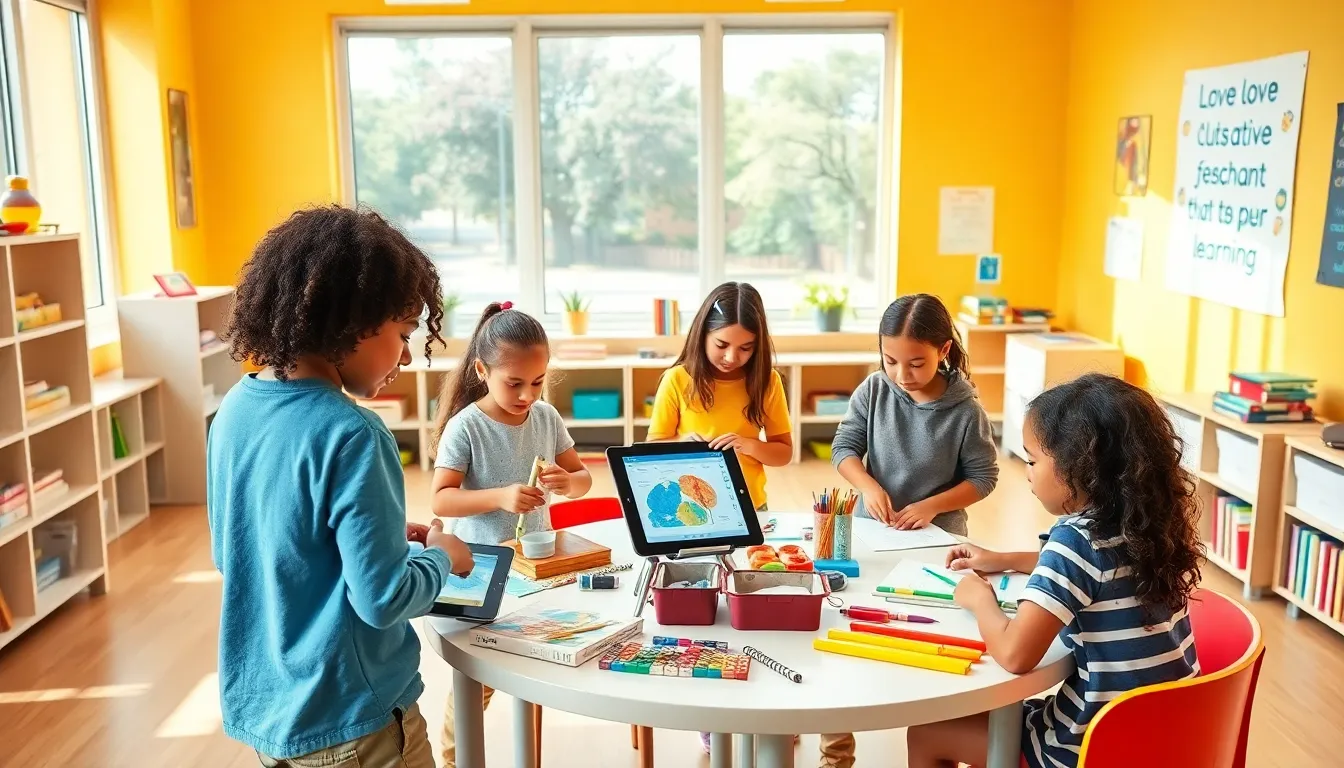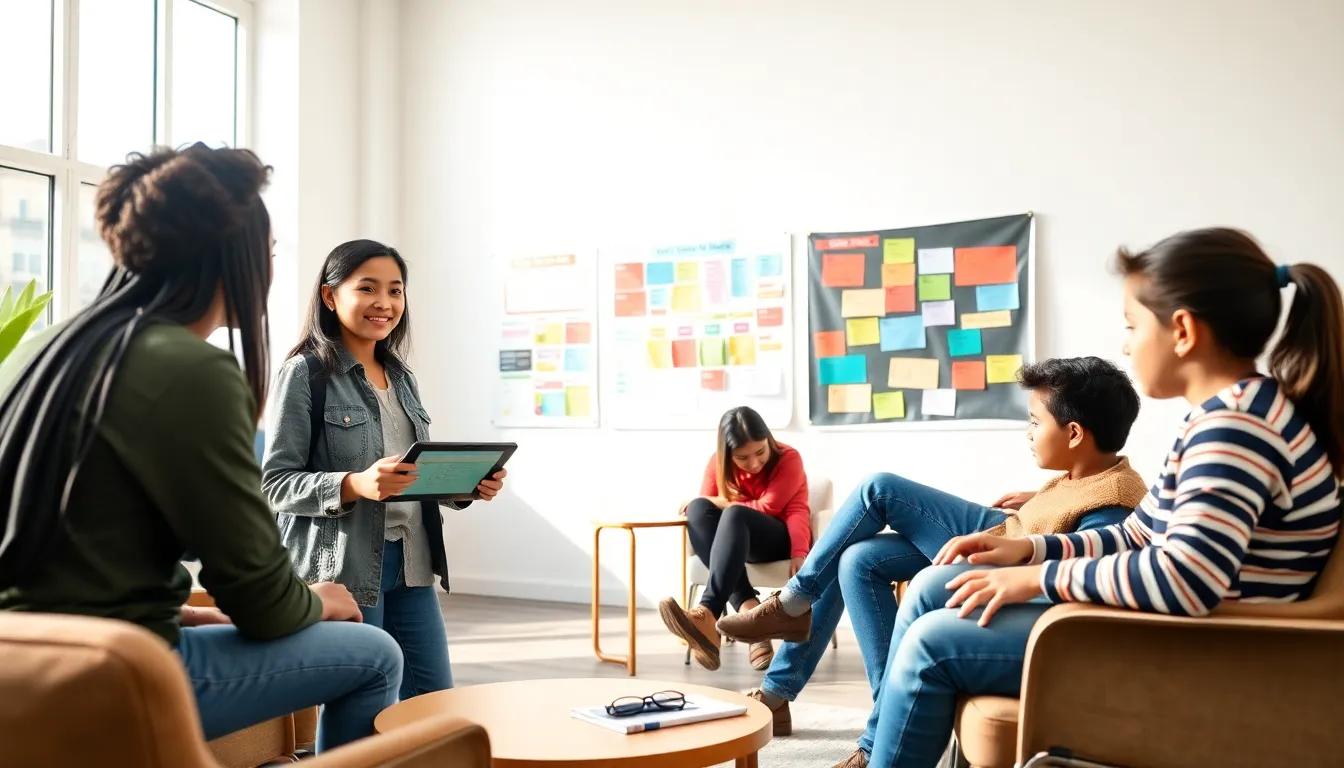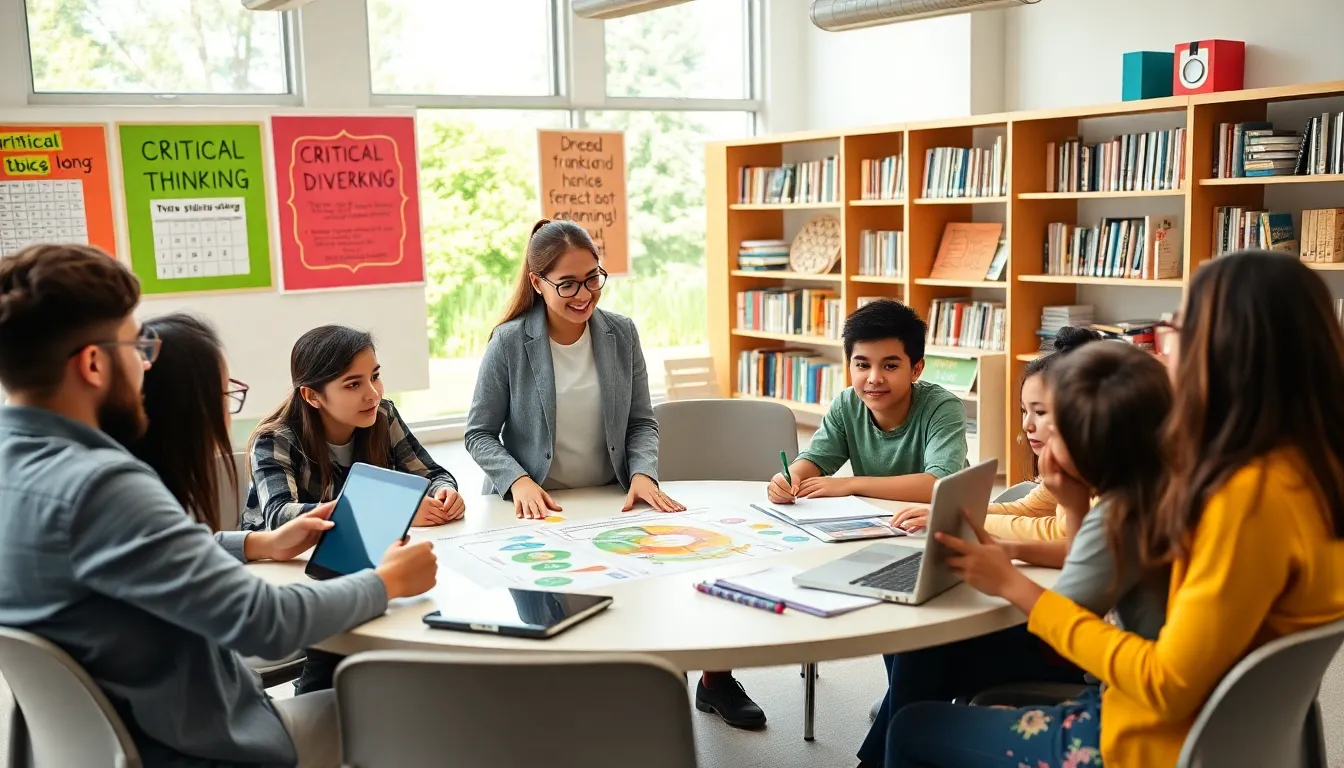Ever feel like traditional schooling is a bit like putting a square peg in a round hole? There’s a world of learners out there, each with different styles, needs, and dreams. Enter alternative education methods, a fancy term for doing education a little differently. From Montessori to unschooling, these approaches offer a refreshing twist on how we can cultivate knowledge. Join us as we explore how these methods could brighten the future of education, making it more engaging and personalized than ever before. Spoiler alert: It’s not all just crayons and finger paint.
Table of Contents
ToggleWhat Are Alternative Education Methods?

Alternative education methods encompass a variety of educational philosophies and practices that diverge from traditional schooling. Often, these methods prioritize student-centered learning, allowing individuals to explore topics they are passionate about while fostering critical thinking and problem-solving. Rather than sitting in structured classrooms for hours, students in alternative settings often engage in hands-on projects, collaborative learning, and experiential activities. The goal? To create an environment that promotes creativity and independence, eventually fostering a love for lifelong learning.
Types of Alternative Education Methods
Diving into alternative education opens the door to a colorful world of options. Here are some notable methods that have gained traction:
Montessori
Created by Dr. Maria Montessori, this method emphasizes independence, mixed-age classrooms, and hands-on learning. Here, students aren’t just passive recipients of knowledge: they actively engage with their environment at their own pace.
Waldorf
Developed by Rudolf Steiner, Waldorf education focuses on holistic development. It nurtures emotional, social, and academic growth through artistic and practical activities. Students participate in crafts, music, and movement, making education a rich tapestry of experience.
Unschooling
Unschooling throws traditional curricula out the window. Instead of following a set lesson plan, guardians encourage children to pursue their interests, turning everyday life into an engaging learning adventure. Whether it’s cooking, gaming, or gardening, unschooling values self-directed learning above all.
Project-Based Learning (PBL)
In PBL, students investigate real-world problems and develop solutions. This method is particularly appealing as it promotes skills like critical thinking and collaboration, essential in today’s workforce.
Online Education
With the rise of technology, online education has surged. Blending flexibility with access to diverse resources, students can learn at their own pace, choosing courses that resonate with their passions.
Advantages of Alternative Education
Opting for alternative education methods comes with a host of advantages:
- Personalized Learning: Students can tailor their education to suit their interests and learning styles. This custom approach often results in deeper understanding and engagement.
- Increased Motivation: When learners can choose what and how they study, they often feel more invested in their education. Higher motivation naturally leads to better retention of information.
- Development of Life Skills: Alternative settings encourage qualities like time management, collaboration, and critical thinking, which are crucial for success beyond the classroom.
- Flexible Environments: Whether in the woods, a kitchen, or online, alternative education can break the mold of a four-walled classroom, facilitating dynamic learning experiences.
Challenges and Considerations
Even though their growing popularity, alternative education methods face challenges that warrant consideration:
- Lack of Recognition: Not all alternative methods are accredited, which can lead to concerns about the legitimacy of diplomas or degrees issued by these programs.
- Parental Involvement: Many alternative education methods require high levels of parental involvement. This can be a double-edged sword, as not all families may have the time or resources to engage deeply.
- Socialization Concerns: Critics often wonder how students in alternative settings socialize compared to their peers in traditional schools. Proper opportunities for interaction are vital for developing social skills.
- Variable Quality: Like any educational approach, the quality of alternative programs can differ widely. Prospective families must research thoroughly to find a reputable program that aligns with their values.
Successful Examples of Alternative Education
Certain alternative education methods have flourished, showcasing their effectiveness:
- Montessori Schools have seen significant success worldwide, gaining recognition for a nurturing approach that prepares students not just academically, but socially and emotionally as well.
- Waldorf Education has inspired a movement that values creativity and holistic personal development, schools often have long waiting lists due to increasing demand.
- Self-Directed Learners like those practicing unschooling have gone on to achieve remarkable success in various fields, often attributing their creativity and passion to their alternative learning paths.
- Online Platforms like Khan Academy and Coursera have revolutionized access to education, empowering millions globally to learn at their own pace.
The Future of Alternative Education
As the landscape of education continues to change, so too does the outlook for alternative methods. With an increasing focus on personalized learning and student engagement, alternatives to traditional schooling are gaining ground. Technology integration, such as virtual reality learning environments and artificial intelligence, is set to enhance these methods further.
Also, the pandemic underscored the need for flexibility in education, leading some traditional institutions to adopt blended or alternative practices. The future of alternative education is bright, expanding beyond niche circles into broader acceptance, acknowledgment, and success in mainstream education.



